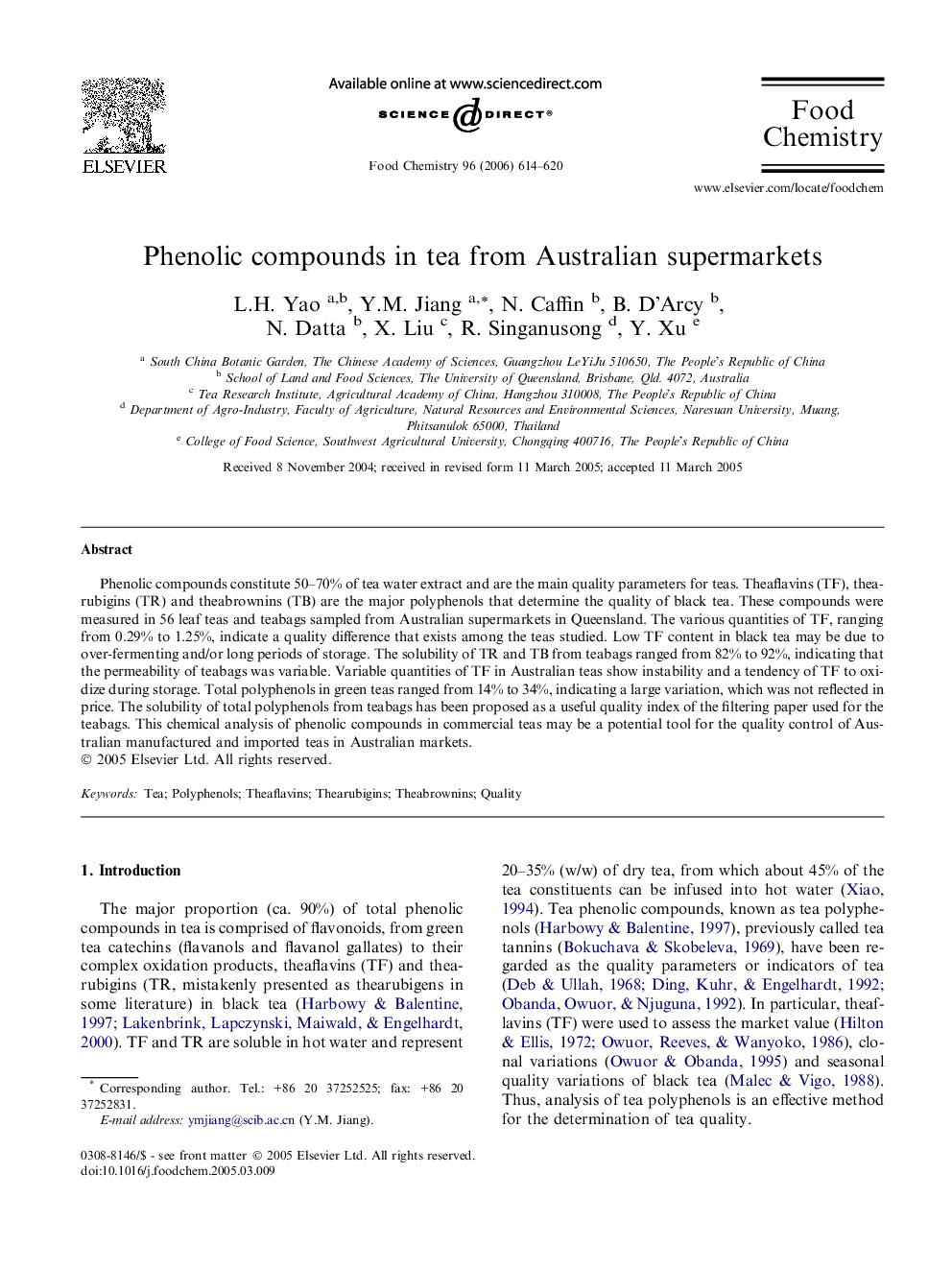| Article ID | Journal | Published Year | Pages | File Type |
|---|---|---|---|---|
| 1191527 | Food Chemistry | 2006 | 7 Pages |
Phenolic compounds constitute 50–70% of tea water extract and are the main quality parameters for teas. Theaflavins (TF), thearubigins (TR) and theabrownins (TB) are the major polyphenols that determine the quality of black tea. These compounds were measured in 56 leaf teas and teabags sampled from Australian supermarkets in Queensland. The various quantities of TF, ranging from 0.29% to 1.25%, indicate a quality difference that exists among the teas studied. Low TF content in black tea may be due to over-fermenting and/or long periods of storage. The solubility of TR and TB from teabags ranged from 82% to 92%, indicating that the permeability of teabags was variable. Variable quantities of TF in Australian teas show instability and a tendency of TF to oxidize during storage. Total polyphenols in green teas ranged from 14% to 34%, indicating a large variation, which was not reflected in price. The solubility of total polyphenols from teabags has been proposed as a useful quality index of the filtering paper used for the teabags. This chemical analysis of phenolic compounds in commercial teas may be a potential tool for the quality control of Australian manufactured and imported teas in Australian markets.
